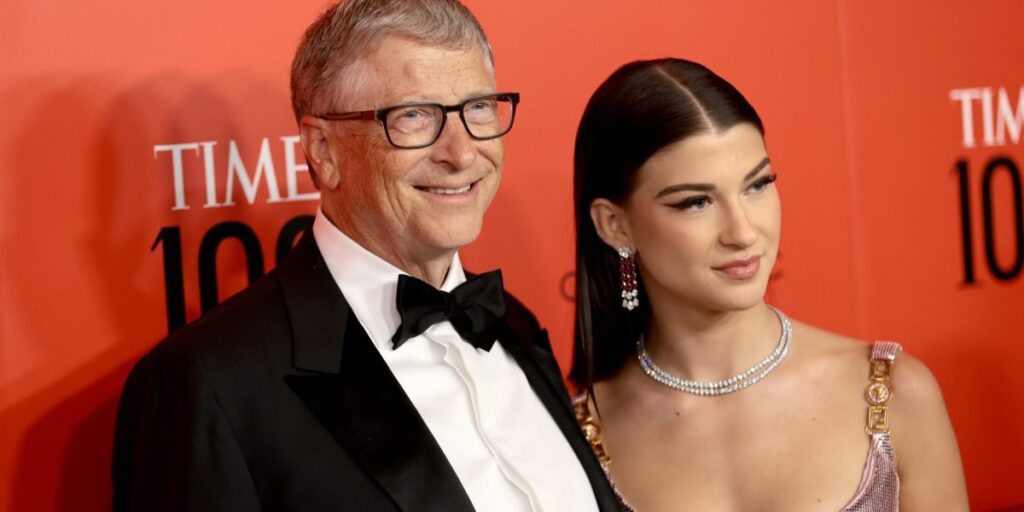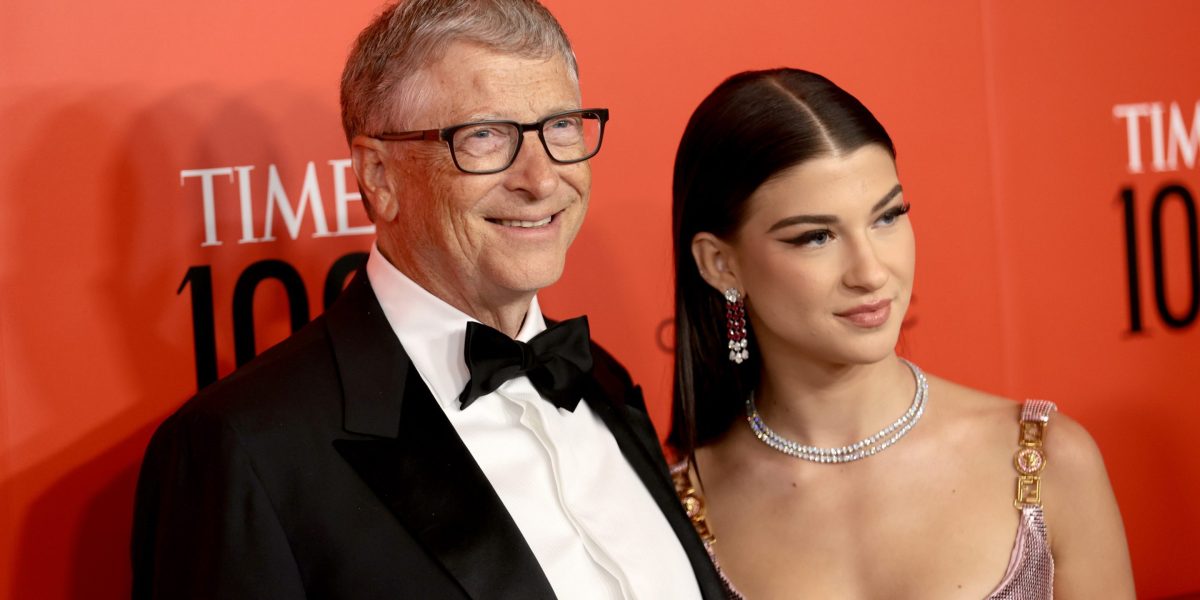Bill Gates identifies the biggest burden being passed on to his children after seeing his daughter harassed online
Microsoft founder Bill Gates said he had been naive in assuming that “when we made information available, that people would want correct information.”


There are many problems billionaire tech tycoon Bill Gates is hoping to help solve: eradicating polio, water sanitization and agricultural development to name a few. But one frontier he worries is being passed on to future generations is misinformation.
Misinformation is a problem, the Microsoft co-founder said, which we are “handing to the younger generation.”
Speaking to CNBC Make It Gates, worth $158 billion per the Bloomberg Billionaires Index, said he had been naive in assuming that “when we made information available, that people would want correct information.”
A high-profile figure himself, Gates has seen scrutiny extend to his family. His daughter Phoebe, in particular, has struggled with being harassed online.
“Hearing my daughter talk about how she’d been harassed online, and how her friends experienced that quite a bit, brought that into focus in a way that I hadn’t thought about before,” Gates—a father of three—continued.
Gates’s youngest daughter has previously spoken about the misconceptions about her family and relationships, including being “memed for being in an interracial relationship.”
An internet meme is an image or video, usually intended to be humorous, which is spread online.
Despite being aware of how misinformation is spreading online, Gates said he can understand why certain audiences flock to platforms that reflect their views—a phenomenon known as confirmation bias.
“We have context where we want correct information like hopefully when we want medical advice,” Gates said. “But then we kind of like, in our community and enclave, have these shared views that kind of pull us together.”
He explained: “Even I will wallow. Let’s say there’s a politician I don’t like, and there’s some article online criticizing him a little bit. I’m like, ‘Oh, that’s such a good critique [and] I enjoyed reading it, even if it was exaggerated.’”
‘We should have rules’
Fellow billionaire Elon Musk is seemingly not a fan of Gates—and Gates’s probing questions about how to control the spread of incorrect information online may not have helped the relationship.
Gates said in the interview released yesterday: “We should have free speech.
“But if you’re inciting violence, if you’re causing people not to take vaccines, where are those boundaries?
“Even the U.S. should have rules, and then if you have rules, what is it? Is it some AI that encodes those rules? You have billions in activity and if you catch it a day later the harm is done.”
This isn’t the first time Gates has proposed the emerging technology as a tool against misinformation and deepfakes (images and videos which are incredibly realistic but are not authentic.)
In a blog post on his website, GatesNotes, in July the Bill and Melinda Gates Foundation founder wrote: “This will be a cyclical process: Someone finds a way to detect fakery, someone else figures out how to counter it, someone else develops counter-countermeasures, and so on.
“It won’t be a perfect success, but we won’t be helpless either.”
Musk’s take on freedom of speech
Musk, the CEO of Tesla and owner of X—the platform previously known as Twitter—is a free-speech absolutist who may not take kindly to the notion of rules being placed on what he can say.
Musk believes freedom of speech is the “bedrock of democracy” and has vowed to battle apparent censorship of his platform.
The SpaceX founder is currently engaged in a fierce battle with lawmakers in Brazil over their decision to ban the platform in the country, alleging the site spread hate speech and fake news.
That being said, a debate over how to control misinformation wouldn’t be the first time the views of Musk and Gates have been at odds.
In July, for example, Musk threatened Gates would be “obliterated” for apparently holding a bearish position on Tesla stock.
Fortune could not confirm whether Gates still owns a short position on the EV maker.
Likewise, Gates believes his management style is better than Musk’s—a boss he believes may push “too hard.”
Musk has also claimed Gates doesn’t understand artificial intelligence, saying his insight on the topic is “limited.”
Musk tweeted in March of last year, in response to an essay written by Gates on the subject: “I remember the early meetings with Gates. His understanding of A.I. was limited. Still is.”
Misinformation may just be the latest of many topics on which the billionaires will have to agree to disagree.
In our new special issue, a Wall Street legend gets a radical makeover, a tale of crypto iniquity, misbehaving poultry royalty, and more.
Read the stories.








